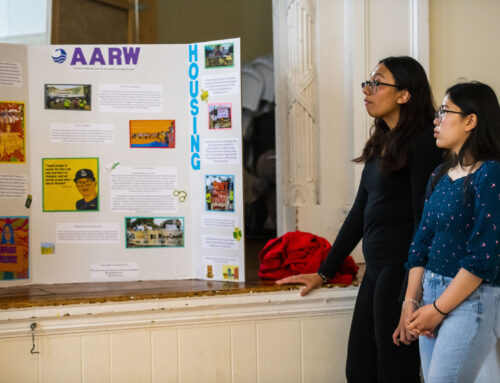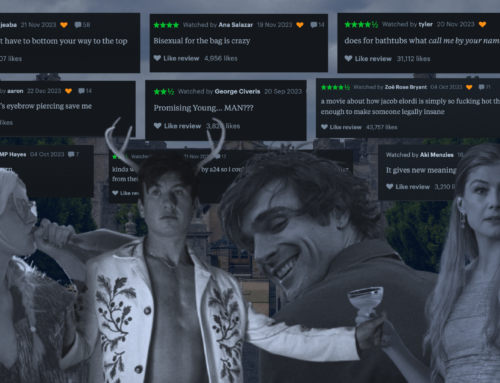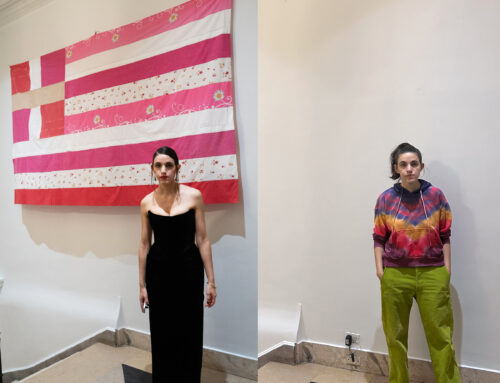A few days ago, I was scrolling through my subscriptions on YouTube and clicked on a Jubilee video titled “Is Pocahontas Offensive to Native Americans?”. Jubilee is a YouTube channel that helps connect and inspire people through human-centric videos that share compelling stories, challenge assumptions, and touch the soul. This particular video is a part of their popular series that dives deeper and reveals the different perspectives of various groups of people on controversial questions with videos such as “Do All Teen Moms Think the Same?”. Clicking on this video, I was somewhat wary because while serious topics would be discussed, I wasn’t sure if the video would address them in an equally serious manner that is not for the purpose of entertainment. However, this video was one of the first videos I have watched that gave Native American people, who have little to no voice in the media or other places, a platform to speak. Looking through the comments on the video, I saw one that stood out to me: “I feel like we talk about Native Americans like they are extinct”.
With thousands of upvotes, this comment definitely resonated with many people, including myself. There were numerous issues addressed in the video that I never heard of, such as blood quantum laws, traumas in native communities, and whether or not the government owes them reparations. While I was watching this video, I wondered what I truly know about indigenous people beyond the fact that they have been mistreated and discriminated against since the beginning of European colonization in America. Because while we acknowledge their suffering, Christopher Columbus is still being celebrated with his own holiday and there is little regard or acknowledgment to the ones that suffered the most: indigenous people. History books are written with biases and so is the media with barely any indigenous representation. With little thought or realization, we are marginalizing and leaving out a significant group of America, and often we act as if they are “extinct”—a people of the past—or even a group that has never existed at all.
Climate change is a relevant issue around the world, especially for indigenous people. They are the group that is most affected by climate change, but they are also the least heard perspective. The green and environmental movement is only becoming more mainstream, but we keep on hearing the same names, including Greta Thunberg. It is undeniable that this 16-year-old girl climate change activist is a leading face of the movement, and she is helping the movement raise awareness and gain traction with her speeches like the one at the United Nations Climate Summit. Her name is everywhere in headlines and she is quite admirable as she went from initiating local school climate strikes to initiating international climate strikes. However, there are many people of color from communities on the front-line of climate action that are not recognized with the same respect or fervor. They are youth leaders who are not only trying to save the planet, but they are also fighting for climate justice—which is the reality that climate change is not purely environmental but an ethical and political issue. In order to fight against climate change, there are countless systems of oppression that need to end, including ones against indigenous people. These activists are calling for the protection of indigenous lands and indigenous sovereignty, a Green New Deal, an end to the use of fossil fuels, and the support of climate refugees.
Artemisa Xakriabá is a 19-year-old youth climate activist who belongs to the Xakriabá people in Brazil. She was the opening speaker at the Global Climate Strike in New York, where Thunberg spoke last. Their voices are both equally as important, and as Xakriabá eloquently said herself, “I [she] am also here as a young woman, because there’s no difference between an indigenous young female activist like myself and a young female activist like Greta. Our future is connected by the same threads of the climate crisis”. However, it is important to hear and differentiate the specific arguments of indigenous activists. Artemisa is mainly fighting against climate racism that puts their lives and sacred territory in danger. The key difference is that, “we [the indigenous people] are being persecuted, threatened, murdered, only for protecting our own territories. We cannot accept one more drop of indigenous blood spilled”.
So what can we do? Being aware and educated is the first step. Learning more about indigenous people and their opinions on certain topics is a start. From there, we can help spotlight and share indigenous voices. Whether it be through social media or word of mouth, one person who knows more is better than no one. You can also go on the numerous indigenous climate change websites where you can explore your options on different actions to take. Just remember, a collective of people who act, no matter in what capacity, has the power of transformative change.



